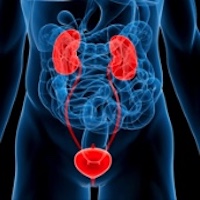Antioxidant treatment of increased sperm DNA fragmentation: Complex combinations are not more successful

Accepted: September 8, 2020
All claims expressed in this article are solely those of the authors and do not necessarily represent those of their affiliated organizations, or those of the publisher, the editors and the reviewers. Any product that may be evaluated in this article or claim that may be made by its manufacturer is not guaranteed or endorsed by the publisher.
Authors
Objective: Oral antioxidant supplementation is part of the treatment of infertility associated with oxidative stress-related sperm damage. It is possible to assume that the combined use of antioxidants will be better than single agent use. The purpose of this study was to compare the effectiveness of different antioxidant combinations in infertile men with increased sperm DNA fragmentation. Materials and methods: We retrospectively reviewed the records of 637 patients who underwent antioxidant support therapy for increased sperm DNA damage between 2014 and 2019. Patients with DNA damage of 30% or more were included study. Result: A total of 163 patients with follow-up data and who fulfilled the study criteria were included in the study. There were four different treatment groups. No statistically significant differences were found between the groups. After 3 months of antioxidant treatment, there was a statistically significant decrease in sperm DNA damage in all treatment groups. However, there was no statistically significant difference between the treatment groups. Conclusions: The complexity of the antioxidant combination may not contribute to the success of the treatment or may cause possible side effects, increase the cost of treatment and decrease patient compliance.
How to Cite
PAGEPress has chosen to apply the Creative Commons Attribution NonCommercial 4.0 International License (CC BY-NC 4.0) to all manuscripts to be published.

 https://doi.org/10.4081/aiua.2020.4.362
https://doi.org/10.4081/aiua.2020.4.362



